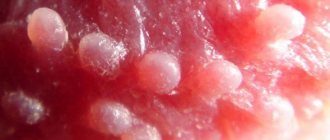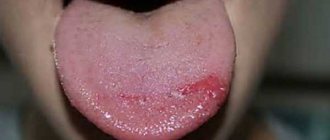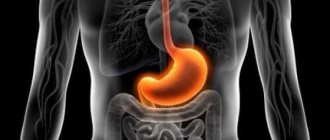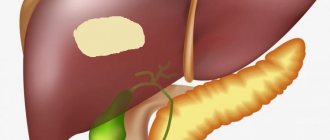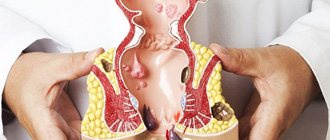Metallic odor from the mouth
When a metallic smell from the mouth appears after eating or drinking a glass of water, this may indicate an increased iron content in foods . Also, a temporary symptom may appear when cooking using aluminum cookware .
Photo 1: If this phenomenon does not go away after brushing your teeth, then the cause of this symptom will be dental diseases or pathologies in the body associated with the circulatory system. Source: flickr (Evgenia.).
A constant odor may be accompanied by a deterioration in well-being and general pallor of the skin.
Diagnostic methods
What you should do first when one or more signs appear is, of course, consult a doctor. This problem is solved by both therapists, dentists, otolaryngologists, and gastroenterologists.
To find out the causes and make the correct diagnosis, the doctor must carefully study the medical history, collect an anamnesis to establish or exclude factors that allow the pathology to develop. The specialist examines the mouth, tongue, skin, palpates the abdomen, and measures the temperature.
Since bad breath often appears when the liver is damaged due to the presence of inflammatory processes in it, it is important to undergo all the necessary diagnostic procedures.
To confirm the diagnosis it is necessary:
- Take tests: blood (general clinical and biochemical), urine, feces - for PCR diagnostics, serological tests, hormonal studies.
- Undergo an instrumental examination: ultrasound of internal organs, X-ray, CT, MRI.
Causes of bad breath
The smell of metal and the characteristic taste are not the main ones and arise due to the influence of substances formed in the body on the olfactory homoceptors. The products of lipid oxidation under the influence of metal salts form substances such as transepoxydecenal, octadiene 3 OH, octene 3 OH, which give an unpleasant metallic odor.
What can cause bad breath?
- Diseases accompanied by anemia . These are pathologies of the stomach, thyroid gland, duodenum, and gallbladder.
- Treatment with certain medications : histamine, tetracycline, amoxicillin, metronidazole, feramide.
- Mineral water with a high iron content . Regular use of mineral water can contribute to the appearance of a metallic odor.
- Bleeding in the mouth . These are gingivitis, bacterial or traumatic stomatitis, periodontitis, which are accompanied by bleeding gums.
- The presence of a metal structure in the oral cavity . Low quality dentures with combined metals provoke galvanosis.
To get rid of an unpleasant metal smell, you must accurately determine the causative factor .
If this is a temporary phenomenon associated with eating food or using aluminum cookware, there is no need to worry, just review your diet and monitor your oral hygiene.
When it comes to diseases of the oral cavity or other organs, then a different approach is needed, namely drug treatment and rehabilitation at the dentist.
Dental reasons
Some pathologies of hard tissues of teeth and periodontal tissue are accompanied by the smell of iron. Most often this is a symptom of bleeding gums; more than 70% of people experience this . This appears due to the development of periodontitis or gingivitis.
There may also be inflammation of other areas of the mucous membrane with the appearance of bleeding ulcers. When an unpleasant odor is accompanied by sore gums, you should contact your dentist for treatment. The doctor will prescribe antiseptic rinses, local anti-inflammatory gels and applications to speed up the healing of the mucous membrane.
A metallic smell may appear due to galvanism , which is important for people with removable or non-removable orthodontic structures. They can be made of different metals, which, when exposed to moisture, form a galvanic current.
Symptoms of galvanosis
- increased dryness of the mucous membrane;
- sore gums and tongue;
- gray plaque on the mucous membrane;
- allergic reaction;
- disturbance of the sense of taste or its complete absence;
- tingling and burning;
- headache.
Note! Galvanosis develops in most cases in the presence of prostheses made of cobalt, zinc or steel. Its symptoms will begin to appear a few weeks after the installation of the structure, but it may take six months or even more than a year.
Systemic disorders
Many systemic ailments first show their symptoms in the mouth, especially for pathologies of the gastrointestinal tract . Often halitosis is a symptom of dysbiosis, peptic ulcer disease, gastritis.
Anemia
An insufficient amount of iron is manifested by weakness, fatigue, dizziness, apathy, pallor of the skin and mucous membrane, as well as a specific metallic odor. Anemia can be caused by pathologies of the gastrointestinal tract, poor diet, or impaired absorption of iron .
Hypovitaminosis
Signs include fatigue, nervousness, deterioration of physical and intellectual abilities , insomnia and bad breath.
Gastrointestinal diseases
Pathological processes in the stomach and intestines always manifest themselves in the oral mucosa .
Diseases of the gastrointestinal tract that provoke the smell of metal :
- dyskinesia, cholangitis and other pathologies of the gallbladder, which are simultaneously accompanied by pain in the hypochondrium, stool disturbances and a bitter taste;
- renal pathologies, they are accompanied by weight loss, changes in taste, deterioration of appetite;
- dysbacteriosis and other intestinal diseases, which are accompanied by an unpleasant aftertaste and a white coating on the mucous membrane;
- ulcer of the stomach and duodenum, also manifested by severe pain, vomiting, and heartburn.
Photo 2: An unpleasant metallic smell and taste may be the first manifestation of diabetes mellitus, when other signs of the disease are still absent. This symptom helps to identify a serious disease in a timely manner, so it should not be ignored. Source: flickr (wellunwell).
Treatment
Treatment can eliminate bad breath only in one case. If the methods of influence are chosen correctly. There are several types of treatment, many of which are aimed at masking the odor and temporarily eliminating it. But as soon as you stop treatment, everything returns to normal. What to do? We answer - it is necessary to identify the exact causes and begin to eliminate them.
So, start by visiting your dentist and getting your mouth cleaned. More than half of the adult population of our country suffers from periodontal disease. These include bleeding gums and increased sensitivity to hot and cold temperatures. You've probably noticed that after vigorous brushing of your teeth, droplets of blood remain in the sink. This is a manifestation of periodontal disease. And it may be the main cause of bad breath; periodontal disease is also an indicator of the condition of your gastrointestinal tract. There is no gastritis without periodontal disease and no periodontal disease without accompanying gastritis. This is a medical axiom. Therefore, these diseases must be treated comprehensively and in close cooperation with a dentist and gastroenterologist.
The second point is the treatment of all foci of chronic inflammation. Most often, such lesions are located on the tonsils. This is where staphylococcus and streptococcus like to “settle.” These bacteria cause not only chronic tonsillitis, but also caries. Get examined by an otolaryngologist and make sure that you are not constantly suffering from inflammation of the tonsils. If a problem exists, the doctor will prescribe you special treatment using antibacterial agents.
Check the condition of your kidneys and get tested for dysbiosis. After everything described above, you should think about the general condition of your body. If you smoke, then immediately get rid of this bad habit. Smoking adversely affects not only the condition of the oral cavity, but also the digestion and condition of the upper respiratory tract. Balance your diet. Drink as much fluid as possible. This should be pure water, at least two and a half liters per day for an adult. This will provide enough fluid for saliva to form. Namely, saliva is a natural defense mechanism against bad breath.
How to eliminate halitosis
How to get rid of metal smell:
- rinse your mouth with water and lemon juice or eat a small slice;
- chew ginger, cinnamon or cardamom;
- eat something sweet;
- include citrus fruits and tomatoes in your diet.
Note! Maintaining proper hygiene is also important. When brushing your teeth, you need to pay attention to the tongue, hard palate, gums and the inside of the cheeks. Pathological microorganisms accumulate on the entire surface of the oral cavity, which should be removed with a toothbrush.
Causes of bile smell from mouth
An unpleasant odor coming from the mouth not only causes mental discomfort for its owner and the people around him, but may well be a symptom of some disease.
The scientific name for this unpleasant phenomenon is halitosis.
Halitosis makes it very difficult to communicate with others (family, loved ones, work colleagues, friends), which negatively affects a person’s psychological state. This “aroma” cannot always be hidden with the help of chewing gum or mouthwash, since its cause can be hidden not only in the oral cavity, but also much deeper. If bad breath is a symptom of any disease, then the further the pathology develops, the stronger and stronger its intensity becomes. This phenomenon is unlikely to “go away” on its own, and serious treatment may be required to eliminate it.
Proper nutrition
Do not forget that an unpleasant odor is often a consequence of poor nutrition, which a person can easily correct on his own. In order to improve the functioning of the gastrointestinal tract, restore the normal microflora of the intestines and stomach, and also prevent stagnant processes, it is enough to follow simple rules:
- exclude empty carbohydrates from the diet (bread, cookies, sugar, chocolate, fast food, carbonated drinks, chips), which irritate the mucous membranes and cause fermentation;
- stop drinking alcohol and smoking;
- eat less fatty, salty, smoked and spicy foods;
- do not overeat, give preference to dietary products;
- refuse semi-finished products;
- drink at least 1.5 liters of clean water per day;
- have dinner no later than 3-4 hours before bedtime;
- eat more fresh vegetables and fruits;
- do not eat fried or canned food.
Meat and vegetables are best stewed, boiled or baked in their own juices. Low-fat foods rich in fiber are much more easily absorbed by the body, without overloading the gastrointestinal tract, and therefore without causing stagnation and unpleasant odor.
Gallbladder pathologies and bad breath
If a person has bad breath, the gallbladder may well be the cause.
If the unpleasant amber is accompanied by symptoms such as pain in the right side of the abdomen, heartburn, belching of air, a bitter taste in the mouth, diarrhea, constipation, yellowing of the sclera of the eyes and skin (advanced stage of the disease) - then, most likely, you urgently need to see a doctor - gastroenterologist. There are many pathologies of this organ, but the most common of them are:
- cholestasis (stagnation of bile in the gallbladder);
- cholelithiasis (as a result of stagnation of bile in the cavity of the organ or in its ducts, stones are formed that prevent the normal outflow of bile);
- cholecystitis (inflammation of the muscular walls of the organ);
- cholangitis (inflammation of the biliary tract);
- polyps in the gallbladder (unlike stones, these neoplasms are attached to the walls of the organ and do not move in its cavity, although they can also arise from stagnation of bile);
- dyskinesia (impaired motility of the bladder and/or its ducts) and so on.
These are very serious symptoms indicating problems with the gallbladder. The difficulty in diagnosing such diseases lies in the fact that at an early stage they are most often asymptomatic and do not bother the patient in any way. External manifestations of the disease occur at later stages of its development, when treatment is no longer so simple and quick. In this regard, if you experience bad breath, you should definitely consult a gastroenterologist and undergo an ultrasound of the abdominal cavity. A disease detected in time is much more amenable to conservative treatment, for which medications and traditional medicine recipes are used.
Conservative therapy for this organ consists of taking antispasmodic (to eliminate pain), choleretic (to eliminate bile stagnation), anti-inflammatory (for cholecystitis and cholangitis) and antibacterial (if there is an infection) action.
In addition, it is also necessary to follow a special diet, which is called “Healing Table No. 5.” We will not describe it in detail, since information about it is easy to find on the Internet. The cured pathology leads to the fact that the smell from the oral cavity disappears along with the disease.
If conservative methods do not bring the desired result, surgical treatment must be used. The most commonly used procedure is cholecystectomy (resection of the gallbladder). After removal of the gallbladder, the smell may persist, since the operation eliminates only the consequences of the development of the disease, without in any way affecting its cause, therefore treatment and adherence to diet No. 5 after such surgery should be continued. The absence of this removed organ imposes certain restrictions on the patient, however, if all medical recommendations are followed, most patients return to a full life.
Next, we will talk about what other diseases can cause a person’s breath to smell bad.
Diseases of the gastrointestinal tract
Not only pathologies of the gallbladder, but also diseases of other organs of the digestive system can provoke an unpleasant amber. As a rule, such diseases are also accompanied by abdominal pain, heartburn, dyspeptic disorders and other related symptoms.
The most common diseases of the digestive system are gastritis and reflux esophagitis, in which bile mixed with gastric juice enters the esophagus. As a result of reflux, this mixture can rise up to the oral cavity, causing a bitter taste in the mouth and an extremely unpleasant odor.
If the patient has diabetes or pancreatitis (inflammation of the pancreas), then the smell from the mouth is similar to the smell of acetone. Treatment for such diseases is prescribed by a doctor, after which the smell gradually disappears.
Also, such a negative phenomenon may indicate dysbiosis or an inflammatory process in the stomach or intestines. As a rule, such pathologies are indicated by a sour “aroma” from the oral cavity.
Treatment of such diseases is carried out with the help of drugs that lower the level of acidity, as well as antibacterial drugs and drugs that restore the normal state of the intestinal microflora.
Often, such amber appears after heavy feasts (especially with the consumption of alcoholic beverages). In this case, it is best to use enzyme-containing medications (for example, Mezim) or simple activated carbon.
Our tongue can tell us about the presence of diseases of the digestive system. As gastroenterologists say, if there is a white or yellowish coating on the tongue, this indicates the emergence of problems with the gastrointestinal tract.
Problems with gums and teeth
The specific smell of rotten breath is a signal of poor condition of teeth and gums.
In this case, you need to contact your dentist and undergo complete treatment of the entire oral cavity.
If the condition of the teeth and gums is normal, then the cause of the amber is poor oral hygiene. You need to brush your teeth two to three times a day (preferably after every meal), not forgetting to brush your tongue. Each cleaning should last at least two minutes and be done thoroughly and using modern cleaning products. The use of special rinses with an antibacterial effect helps against oral odor.
Food particles entering the oral cavity cause the proliferation of odor-causing bacteria. They can also get stuck in dentures, braces and crowns, so care must be taken regularly and thoroughly.
What examinations need to be completed
Diagnosis is carried out by a variety of specialists. First of all, you need to contact a therapist (or pediatrician, if we are talking about a child). He will carry out routine diagnostic measures and give the necessary referrals to specialized specialists.
And here various options are already possible. There are many doctors whose competence is the treatment of bitterness in the throat.
From otolaryngologists to gastroenterologists and even allergists-immunologists. To avoid confusion, you need to go to a therapist.
The minimum program includes the following studies:
- Anamnesis collection. The doctor collects information about the nature of the diseases suffered and the presence of chronic pathological processes.
- Oral questioning of the patient. It is important to identify all the complaints that the patient has and record them in writing.
- X-ray of the abdominal organs. Overview.
- Contrast radiography of the stomach.
- FGDS. An endoscopic examination that allows you to evaluate the condition of the stomach and esophagus.
- General blood analysis. Especially often it demonstrates a picture of the inflammatory process (leukocytosis, ESR). Helminth infections and allergies are accompanied by eosinophilia.
- Dental examination (assessment of the condition of the oral cavity).
Other activities are carried out at the discretion of the specialist, depending on the situation.
How can you find out for yourself whether your breath smells or not?
If you notice that when communicating with you, your interlocutors try to turn away or periodically frown, this is a sure sign of a bad scent. However, it is better not to let it come to this, but try to check the purity and freshness of your breath yourself.
To do this, you need to cover your nose and mouth with your palms, exhale sharply and draw in the exhalation products through your nose. This way you will smell the same smell that people around you smell.
Another way is to run a thin cloth or floss over your teeth and smell. If an unpleasant odor emanates from them, it means that it emanates from you too.
Nowadays pharmacies sell special tests to determine the oral “aroma”, with which you can evaluate the freshness of your breath on a five-point scale. We cannot say how effective and truthful they are, but it’s worth trying.
Folk remedies for bad breath
Let’s say right away - if such a “aroma” is associated with any disease, then only a doctor should prescribe treatment, and traditional medicine can only act as an auxiliary therapy. In other cases, the following simple recommendations may help:
- Brush your teeth and tongue thoroughly, at least twice a day (morning and evening);
- Coffee beans, carrots, parsley and celery root help eliminate bad breath; Apples are a good breath freshener, as are seasonings such as cloves and cumin;
- Daily chewing of mint leaves helps get rid of the unpleasant amber; in addition, based on them, you can prepare a decoction for rinsing (1 teaspoon of crushed mint leaves per glass of water; then boil for two minutes and leave for about twenty minutes);
- in addition to mint, plants such as sage, chamomile and strawberry leaves can be used to prepare infusions and decoctions;
- Regular consumption of birch sap helps cleanse the body of toxins and waste, which also reduces the intensity of unpleasant odors.
The main advice is not to overeat before bed! This is especially true for fatty, fried and spicy foods, since they are the most difficult to digest (especially at night). After a hearty dinner, you are guaranteed a specific “aroma” from your mouth the next morning. At night you can eat some fruit, drink a glass of kefir or fermented baked milk. This perfectly satisfies hunger and relieves the digestive system at night.
Currently, dentists offer a large number of toothpastes that have an antibacterial effect and are good at eliminating unpleasant odor. The choice is yours.
The main thing is to take care of your oral hygiene, eat right and give up bad habits, and then communicating with you will only bring pleasure to those around you.
Stagnation of bile. Treatment with natural remedies
Why does bad breath occur with gallbladder problems?
How to get rid of odor
The issue of getting rid of this problem must be approached comprehensively, taking into account the cause of this condition. If these symptoms are associated with diseases of the digestive system, then the primary task is to normalize the diet. For gastritis and intestinal diseases, it is recommended to constantly follow the following dietary recommendations:
- It is recommended to eat a minimum amount of foods containing simple carbohydrates (sugar, confectionery).
- You should limit your consumption of meat products.
- It is also necessary to temporarily exclude coffee, cottage cheese, whole milk and foods containing large amounts of fat from the diet.
- It is recommended to avoid eating fruits that cause fermentation in the intestines (grapes, apples and plums).
- It is necessary to consume more fermented milk products (kefir, acidophilus, yogurt).
If bad breath is caused by diseases of internal organs and systems, then in order to eliminate it it is necessary to fight the disease. In all other cases, it is recommended to follow these rules:
- Completely quit smoking and limit the consumption of alcoholic beverages.
- Drink increased amounts of fluid. For this purpose, mineral water in the amount of 1.5-2 liters per day is useful.
- Periodically use special sugar-free lollipops and chewing gums.
- Brush your teeth at least 2 times a day.
- Clean dental gaps daily using dental floss.
- After each meal, it is recommended to rinse the mouth with boiled water or special rinses containing an antiseptic component. Hydrogen peroxide has a good effect against bad breath, which should be added 5-6 drops per glass of water for rinsing.
- Visit your dentist regularly, have carious teeth treated, and have tartar removed professionally.
- When brushing your teeth, it is recommended to pay attention to tongue hygiene. You can clean it with a toothbrush or a teaspoon.
- If a person wears dentures, it is recommended that they be removed and cleaned daily with a toothbrush, followed by rinsing in an antiseptic solution.
In the fight against this problem, folk remedies for bad breath help, which are recommended to be used as an addition to the main treatment. For rinsing, it is recommended to use an infusion of chamomile and sage.
If the recommendations described above do not answer the question of how to kill bad breath, then the person is advised to seek advice from a dental specialist. The doctor will be able to identify diseases of the oral cavity of an inflammatory and non-inflammatory nature, and prescribe a medicine that corresponds to the problem.
To eliminate the problem, special sprays are used that not only freshen breath, but also disinfect the oral cavity.
Remedies for bad breath in the form of balms for rinsing have a pronounced effect. The range of these products includes balms based on the following components:
- Zinc compounds. These components have an antiseptic and astringent effect.
- Extracts of medicinal herbs. Natural extracts of medicinal plants have anti-inflammatory, wound healing and antiseptic effects.
- Chlorhexidine. This component kills bacteria that cause unpleasant odor in the mouth.
- Ethanol. Oral balms that contain ethyl alcohol have antiseptic properties. The only downside is that these substances dry out the oral mucosa.
You can read about dental myths here.
Why does the taste of bile appear in the mouth?
Many people are familiar with the phenomenon of halitosis. It appears under the influence of various exogenous and endogenous factors. It is very important to find out the cause of this condition, since often an unpleasant aroma and taste in the mouth appears with the development of any disease. You should not ignore such signs; you should consult a doctor, find out the cause and carry out timely treatment. If there is a taste of bile in the mouth, the reasons most often lie in pathological processes in the gall bladder, liver or in the organs of the digestive system.
Diagnostic principles
The search for the cause of the release of bile into the esophagus should begin by contacting a gastroenterologist. The range of necessary examinations depends on the nature of the complaints and examination data, and is therefore determined individually. Basic diagnostic methods:
- FGDS. Endoscopy allows you to visualize the mucous membrane along the gastrointestinal tract and assess the condition of the sphincters. You can detect yellowish-colored gastric contents, a gaping pylorus, and secondary areas of inflammation.
- Daily pH-metry. The principle is based on the difference in pH between the contents of the duodenum and the stomach (in the first case, the environment is alkaline, in the second, acidic). When bile flows back, the probe will record a change in the corresponding indicator.
- Ultrasound of the abdominal organs. Allows you to detect signs of cholecystitis, calculi (stones) of the biliary tract, dyskinesia of some anatomical structures.
- X-ray with contrast. The images will show the backflow of barium from the duodenum. The method helps to exclude certain types of tumor diseases.
Laboratory diagnosis fades into the background, as it lacks specificity. However, a biochemical blood test is indicated. The analysis allows, for example, to identify indirect signs of cholestasis (stagnation of bile). Possible changes: increased levels of bilirubin (mainly direct), increased activity of alkaline phosphatase, GGTP.
Why does the smell of bile appear from the mouth?
The reasons why an unpleasant odor appears from the mouth and there is a bitter taste often lie in the following diseases and conditions:
- An unpleasant odor with a bitter taste in the mouth appears when there are disturbances in the functioning of the gallbladder (cholestasis or stagnation of bile, impaired production and excretion of bile, pathological reactions in which bile refluxes into the esophagus).
- If such symptoms appear in the morning, the cause may be the consumption of large quantities of food the night before. Especially if the food is fatty, fried, smoked. In this case, a coating on the tongue, abdominal pain, and unpleasant belching appear.
- Taking certain medications can cause taste disturbances. Often the list of drugs that affect the liver and gall bladder includes antibacterial drugs. Such medications inhibit the normal microflora in the intestinal tract, which negatively affects the functioning of the intestines, liver, and gall bladder. The result is bitterness in the mouth and an unpleasant odor.
- The appearance of bitterness and unpleasant odor may be associated with dental diseases. These are diseases of the teeth, gums, poorly installed dentures or crowns.
- Bad breath after removal of the gallbladder is due to a radical change in the body, as organs learn to work without the gallbladder.
- Many stomach diseases are accompanied by similar symptoms.
- Disturbances in the bile ducts are also complemented by bitterness in the oral cavity. In this case, the digestion process in the human body is disrupted.
- Bad breath and taste are often accompanied by stressful situations and intense psycho-emotional stress.
- Constant bitterness in the mouth often occurs in heavy smokers with experience.
Tell us more about these violations
The formation and excretion of bile occurs in new anatomical conditions. Adaptation to them in case of a successful operation takes about a year.
But often after surgery, pre-existing diseases (duodenitis, ulcers, reflux esophagitis, irritable bowel syndrome) and chronic biliary pancreatitis - a condition of the pancreas that suffers most from the presence of stones and dysfunction in the gallbladder - become aggravated.
Due to the loss of the cystic reservoir, bile produced by the liver in large quantities (up to 1.5 liters per day) immediately enters the ducts. The pressure in them increases, inflammation occurs, and with it pain and dyspepsia (diarrhea). In addition, the tone of the sphincter of Oddi, a smooth circular muscle that controls the flow of bile into the duodenum, is pathologically increased.
Additional symptoms of diseases
If similar symptoms occur, a bitter taste appears in the mouth - this is a sign of dental problems, such as:
- abscess on a tooth;
- gingivitis is an inflammatory process in the gums;
- a reaction in the oral cavity may occur after a filling procedure, installation of a prosthesis or crown.
Diseases of the gastrointestinal tract, the symptom of which may be bitterness, include:
- gastroesophageal reflux, especially often this disease worsens after eating a heavy meal;
- gastritis;
- peptic ulcer;
- increased concentration of hydrochloric acid;
- pathological processes in the liver or gall bladder often involve disruption of digestive processes.
Other reasons for this manifestation are:
- Poor nutrition, which affects your health. In this case, we can assume that this symptom occurs after or during eating.
- Overeating, too long intervals between meals. In addition to bitterness, the following symptoms appear: increased gas production, unpleasant belching, painful sensations in the epigastric region or in the intestines, intestinal upset.
- Hormonal imbalances. In this case, the reason most often lies in a violation of the concentration of estrogen in the body. That is why this symptom is a frequent companion for women during pregnancy.
- Poisoning with metals (lead, copper, liquid mercury) also manifests itself with similar symptoms. Treatment should be carried out immediately.
- Disturbances in liver activity.
- Dysfunctions in the functioning of the gallbladder, as a result of which food is not fully digested, unpleasant symptoms appear.
- Cholecystitis.
- Kinking of the bile ducts, development of gallstone disease.
- Tumor-like processes in the organs of the digestive system.
- Inflammation of the pancreas.
- Disturbances in taste buds.
- Development of diabetes mellitus.
- Problems with kidney function.
- Lack of proper oral hygiene. If the teeth are not cleaned after eating food, food particles remain in the interdental spaces and begin to decompose; this process is accompanied by a stench.
- Eating certain foods that may have a choleretic effect, such as nuts of any kind.
- Diseases of the ENT organs.
Causes of pathology
Reflux results in disturbances of gastric and intestinal motility, increased pressure in the small intestine, and pyloric insufficiency. Bile acids irritate and injure the gastric mucosa and penetrate the walls of the digestive organ. They increase acidity and stimulate additional gastrin production. This increases pressure in the stomach cavity and entails gastroesophageal reflux.
The reasons for the reflux of bile into the esophagus, larynx and oral cavity are as follows:
- malignant tumors;
- peptic ulcer of the stomach, small intestine;
- weakened sphincter of Oddi;
- hiatal hernia;
- uncontrolled use of muscle relaxants, antispasmodics;
- chronic gastritis;
- intense exercise after meals;
- duodenal obstruction.
Often, the release of bile into the esophagus occurs in patients who have undergone cholecystectomy, partial gastrectomy, or suturing of a duodenal ulcer. In pregnant women, reflux can occur due to an enlarged uterus, which puts pressure on the intestines.
Inflammatory diseases of the gastrointestinal tract, chronic stress can provoke spasm of the gallbladder, resulting in stagnation of bile acids.
The release of bile into the oral cavity during sleep occurs when the sphincter of Oddi relaxes. The secretion enters the duodenum in large quantities, creating increased pressure. Bile acids irritate and burn the pylorus and rise higher into the stomach, esophagus and oral cavity.
Another cause of nocturnal reflux is overeating before bed. Eating fatty foods, smoked foods, strong coffee or carbonated drinks causes the body to intensively produce bile to digest lipids. Since all metabolic processes slow down at night, the functioning of the gastrointestinal tract is disrupted, and bile acids are refluxed into the esophagus or larynx.
How can a doctor help?
By examining the oral cavity, the dentist will be able to confirm or rule out dental diseases. After treatment, the unpleasant smell and taste will go away on their own.
If the cause is diseases of the digestive system, the development of cholecystitis or other pathologies, treatment is carried out by a gastroenterologist. A choleretic, antibacterial, anti-inflammatory drug, and a cure for flatulence are prescribed. Medicines that improve the digestion process are mandatory. Additionally, you will need to take sorbents, hepatoprotectors and other medications prescribed by your doctor (depending on the diagnosis).
Folk remedies for getting rid of bad breath
How to get rid of the problem at home? Bad smelling symptoms can be relieved by using mouth rinses. For this purpose, pharmaceutical products and rinses based on medicinal plants are used. It is recommended to supplement the basic treatment regimen with the following folk remedies:
- decoction of corn silk;
- flax seeds;
- infusion of marigold inflorescences;
- a mixture of ground horseradish and milk;
- chamomile decoction;
- You can eliminate the unpleasant aftertaste by rinsing with vegetable oil;
- You can improve your taste sensations by using citrus fruits (but only if your doctor allows it).
You can get rid of unpleasant taste and aroma for a short time by using chewing gum, special lollipops or sprays that freshen your breath. But such a problem will be eliminated completely only after getting rid of the provoking factor.
Drug therapy
In most cases, the conservative treatment regimen consists of taking the following drugs:
- Proton pump inhibitors. These are drugs such as Omez, Gastrozol, Ranitidine, Pepticum.
- Antacids (protect mucous membranes from damage, reduce the secretion of secretions by the gastrointestinal tract). "Almagel", "Maalox", "Gastrofarm".
- Selective drugs that enhance evacuation functions and accelerate the flow of bile. These are Cisapride and Motilium.
- To eliminate bitter belching and normalize bile secretion, use Ursosan, Ursofalk, Ursoliv.
- To relieve the patient of pain, doctors prescribe well-known antispasmodics (painkillers). These are “Baralgin”, “No-shpa”, “Spazmalgon”. In particular, they are prescribed as injections to reduce stress on the stomach.
